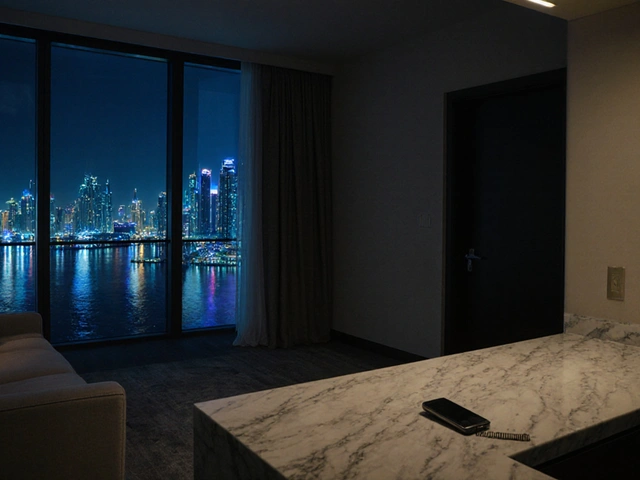
Dubai Internet Censorship: The Basics and How to Stay Safe Online
Living in or visiting Dubai means you’ll run into a web that’s not completely open. The government filters content it considers offensive, political, or a threat to public morals. Knowing what’s blocked and why helps you avoid accidental trouble and keep your browsing experience smooth.
What Types of Content Are Blocked?
Dubai’s filter targets a mix of sites: pornographic material, gambling platforms, some VoIP services, and anything that criticises the UAE government or touches on sensitive religious topics. News outlets that publish anti‑government commentary may also be restricted. The list changes a bit as new laws roll out, but the core categories stay the same.
Legal Risks and Real‑World Consequences
If you try to access blocked content from a local IP, you could face a warning, a fine, or in rare cases, a brief detention. The authorities monitor large VPN providers, so using an unregistered service can raise red flags. Most locals get a gentle reminder before any penalty, but tourists should take the warnings seriously—what feels harmless online can become a hassle at the airport.
That’s why many expats and visitors choose a low‑profile method to stay connected. The key is to blend privacy with compliance.
Practical Ways to Bypass Filters Safely
1. Use a reputable VPN that operates on a non‑UAE server. Choose a service that doesn’t keep logs and offers a kill switch. When the VPN is on, your traffic appears to come from a country without the same restrictions.
2. Switch to HTTPS whenever possible. Encrypted sites are harder for a filter to read, though they can still be blocked by domain.
3. Use Tor for occasional browsing. Tor routes traffic through several nodes, making it tough to trace. Just remember it can be slower and some local networks may flag Tor usage.
4. Mobile data vs. Wi‑Fi. Some hotels and public Wi‑Fi networks have stricter filters than your mobile carrier. If you notice a site blocked on Wi‑Fi, switch to cellular data to check if the restriction is network‑based.
5. Keep software up to date. Modern browsers often have built‑in protections against malicious redirects that can appear when a site is blocked.
Staying Informed About Changes
The UAE updates its cyber‑crime law from time to time. Follow local news outlets or join expat forums to hear about new blocks or legal tweaks. A quick search for “UAE cyber law 2024” will show what’s newly prohibited, helping you avoid accidental breaches.
Also, many hotels now provide a “free internet” notice that lists the types of services they block. Reading that note saves you from trying a VoIP call that just won’t work.
Bottom Line: Browse Smart, Not Reckless
Dubai’s internet censorship isn’t a surprise, but that doesn’t mean you have to live with a frustrating browsing experience. By using a reliable VPN, staying updated on local regulations, and choosing the right connection method, you can enjoy most of the web without risking fines. Remember, the goal is to stay safe and respect local rules while keeping your online life functional.
Got a specific site that seems blocked? Test it on a different network or a VPN. If it works, you likely hit a filter, not a server problem. Keep a short list of trusted VPNs and you’ll be ready for any future changes.
Enjoy Dubai’s vibrant scene, and let your internet habits be just as smooth as the city’s skyline.
-
2 Oct



